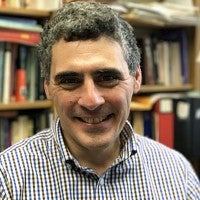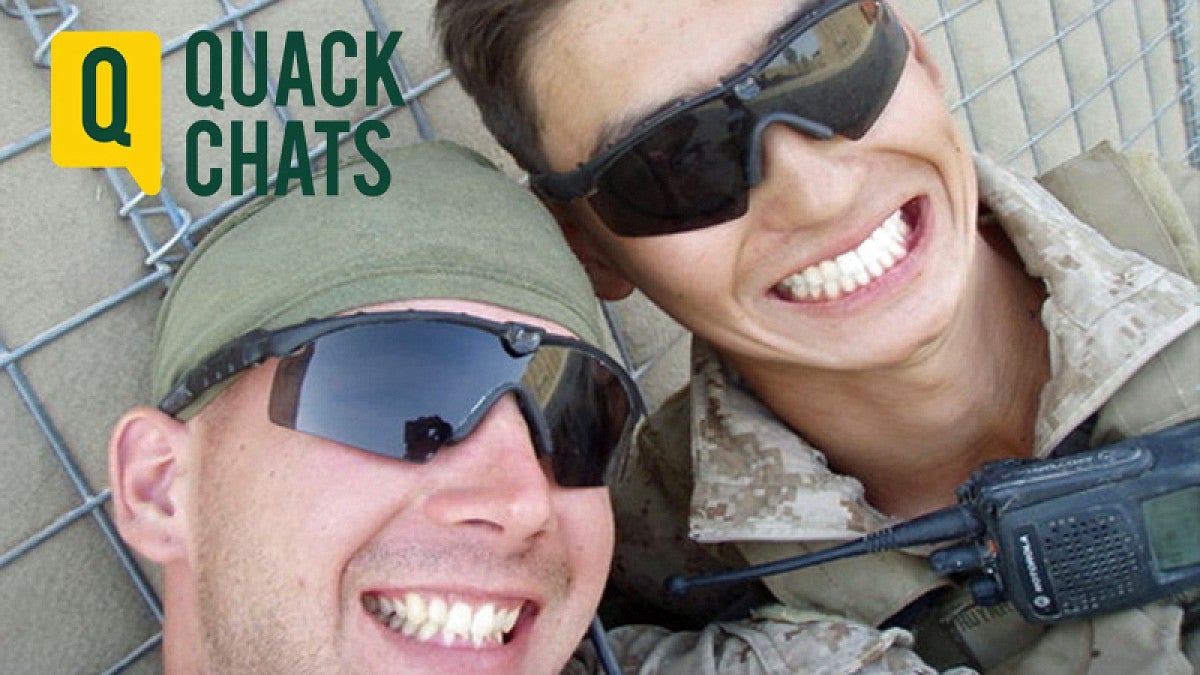Since 2012, the UO Veterans Oral History Project has provided a vehicle for compelling exchanges, like the one highlighted below, between a student interviewer and a U.S. Marine sniper who served in Iraq.
The program is the outgrowth of the Veterans Oral History class taught each winter term by Alex Dracobly, a senior instructor in the Department of History. He will lead the Quack Chats pub talk at 6 p.m. Wednesday in the Erb Memorial Union’s Falling Sky Pizzeria.

QUESTION: Do you think that your actions made a substantial difference?
ANSWER: I don’t know. I know that there are some evil people from this world who are no longer here, doing what they do, because of me, and I’m very okay with that. I’m actually proud of that. So, yeah, I think I did some good. Sometimes you have to do some bad to do some good though. But, yeah, I think I did some good all in all.
“There are entire swaths of our society who don’t know anyone who serves in the military and don’t really think about serving,” Dracobly said. “This is a way to bridge that distance between what some veterans call ‘the one percent who serve and the rest of society that doesn’t.’”
Dracobly hopes to further bridge the divide by sharing some of the interviews he and his students have collected. This week’s Quack Chats will be “a listening party.” It will include a discussion of veterans and military service and feature selected audio excerpts from the interviews. Two UO student veterans, Jennifer Esparza and Daniel Kelly, both Marines who served in Iraq, will share their experiences.
“The project is without an agenda,” Dracobly said. “The idea is to offer veterans a platform that enables them to talk about their service in any way that they like.”
Dracobly describes the Veterans Oral History Project as a research and educational initiative that serves as a teaching tool for students, as well as a means of documenting veterans’ stories and commemorating them for their service. Dracobly’s class serves as the platform for the project, providing students with the impetus to interview veterans, transcribe the interviews and transfer the finished products into the Special Collections in Knight Library, which makes them available to the public via the project’s portal website.
Students have interviewed more than 120 veterans, including those who have served in combat zones and those who never went into battle. They’ve captured stories from UO students, veterans of wars in Iraq and Afghanistan, a member of a renowned military jazz band and even a Portland woman who was part of a little-known squad of female Marines in World War II.
Dracobly said he hopes that attendees of the pub talk will walk away with a greater understanding of veterans, and the range of experiences their stories represent. The veteran population is diverse, he said, but common themes emerge in listening to their stories.
“Something what’s really striking is that virtually all of the veterans we interview say that they would do it again, even the ones who hated it,” Dracobly said. “Often they will talk about how it improved them or disciplined them or made them grow up. They talk about how it made them who they are.”
Quack Chats is part of a public-outreach initiative led by University Communications. Pub talks featuring UO faculty members are held on the second and fourth Wednesdays each month.
—By Lewis Taylor, University Communications


